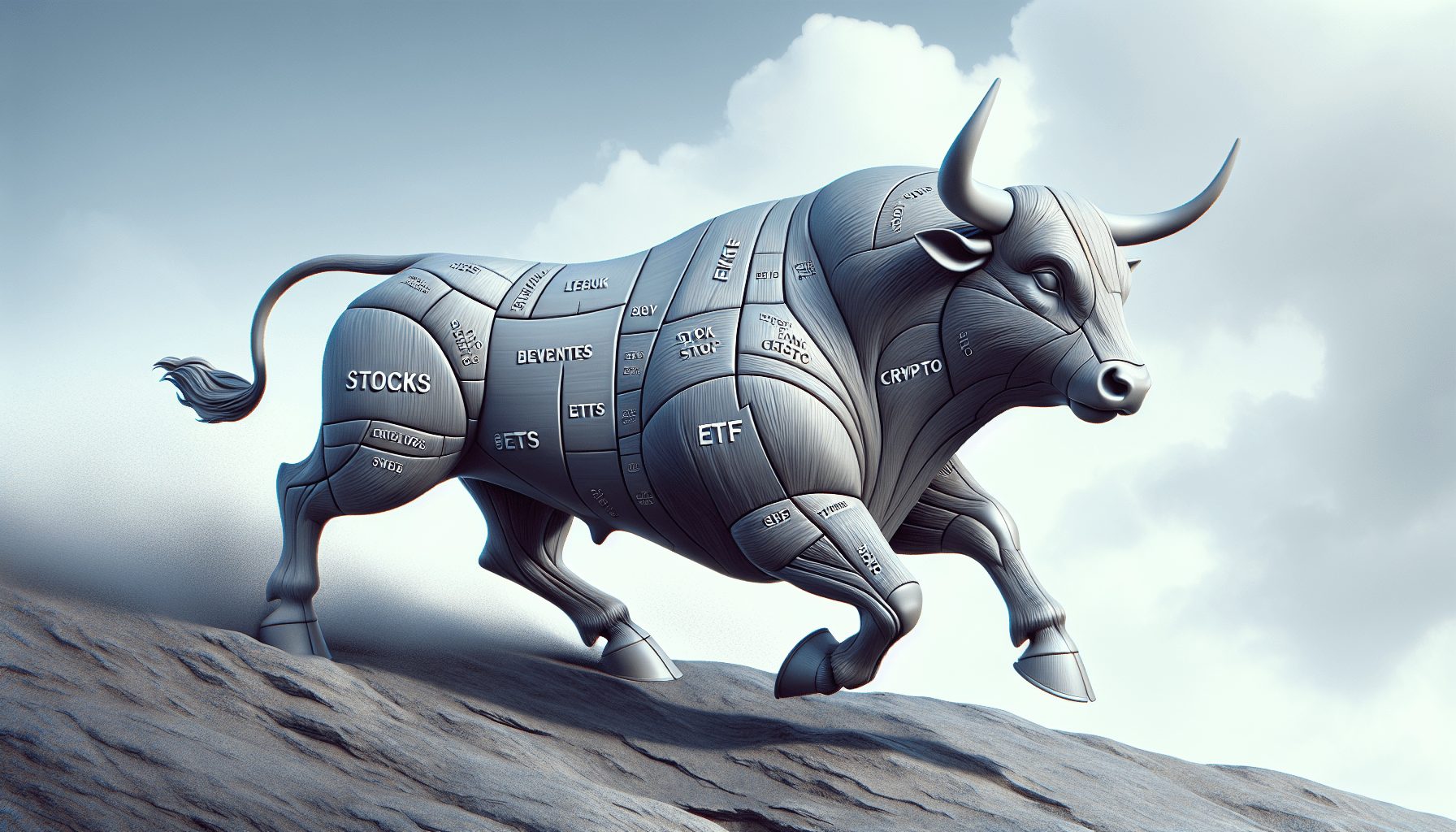4 Recession-proof Stock Market Sectors
When economic contractions unfold, some market sectors historically perform better than others, including consumer staples, utilities, discount retail and alcoholic beverages.

The COVID-19 pandemic turned the world upside down, and things aren’t yet back to “normal.” During Q1 2022, growth in U.S. gross domestic product (GDP) turned slightly negative. If that trend continues in Q2, then the U.S. will have officially entered a recession for the second time since the start of 2020.
What’s most remarkable about that potential development is the fact that the state of the U.S. workforce appears strong at present. The unemployment rate is currently low by historical standards, at 3.6%. And there are plenty of available job openings.
But one can’t necessarily analyze the current state of affairs using the same criteria used prior to 2020. In 2022, pressure on consumers isn’t necessarily coming from a lack of income, but rather as a result of the pace at which consumer expenditures are rising.
Inflation has been running extremely hot in recent months. That means the prices for things like gas, food and rent have risen sharply. Those added expenditures are what’s currently weighing on the minds of average consumers.
Consumer confidence took a big hit in H1 2022. That became evident in June when the monthly University of Michigan consumer confidence index dropped to 50.2%—a level not seen since the Great Recession.
The above chart of the consumer confidence index illustrates that something has been bothering consumers in 2022—and that something is no doubt inflation.
The problem with declining consumer confidence is that it tends to be somewhat of a self-fulfilling prophecy when it comes to the underlying economy. When consumers get worried about the state of their financial affairs, they spend less money. That means less money gets injected into the economy.
U.S. GDP growth already turned negative in Q1 2022, and current projections indicate that Q2 will see another quarter of negative GDP growth. That means that sometime in the last three months the U.S. economy almost certainly entered a recession.
However, for the time being, most projections suggest the 2022 (or 2023) economic recession will be mild, by recent standards. A mild recession would be expected if hiring remains strong and the nationwide unemployment rate remains low.
Under that scenario, the recession would mostly have been due to the so-called “cost of living” crisis, which was created by historically high levels of inflation. And the demand destruction stemming from fading consumer confidence would likely go a long way in taming prices.
On the other hand, the future is uncertain. And while a severe recession doesn’t appear likely at this time, that scenario cannot be cut out completely.
Stock market sectors to consider during a recession
During periods of high inflation, one of the hardest-hit corners of the stock market is usually the “consumer discretionary” sector, as illustrated below.
Consumer discretionary is typically categorized as the goods and services deemed non-essential to the consumer.
The consumer discretionary sector thrives when consumers feel like they have sufficient disposable income. But when optimism in the economy wanes, and consumers cut spending, goods and services from the consumer discretionary sector are some of the first cuts from the monthly budget.
Examples include furniture, travel, eating out and home improvement. Of course, this would also include designer clothes and fine jewelry.
With the potential for a U.S. recession clearly on the rise, one might reasonably wonder what sectors of the financial markets are most insulated from the bite of an economic downturn?
When it comes to the stock market, there are several sectors that have historically outperformed when it comes to recessions. And as one might expect, the out-performers are closely linked to the needs of the consumer, as opposed to the wants. These sectors include consumer staples, utilities, discount retail and alcoholic beverages.
1. Consumer Staples
On the other end of the spectrum are the goods and services that consumers “can’t live without.” Due to their necessity in everyday life, sales of these goods and services don’t typically see a sharp pullback—or any pullback—during a recession.
The best example from this universe is the “consumer staples” sector, which encompasses things like food, soap, toothpaste and toilet paper. Some of the best-known companies operating in the consumer staples sector include:
- General Mills (GIS)
- Kroger (KR)
- PepsiCo (PEP)
- Proctor & Gamble (PG)
- Tyson Foods (TSN)
- Consumer Staples Select Sector SPDR Fund (XLP)
- Vanguard Consumer Staples ETF (VDC)
- iShares U.S. Consumer Staples ETF (IYK)
2. Utilities
Beyond consumer staples, another key market sector that tends to outperform during periods of economic contraction is utilities. While it’s not the most glamorous niche of the financial markets, utilities are certainly essential, and are therefore at the end of the list when it comes to cuts in the consumer budget.
Companies operating in the utility sector typically provide a good or service related to electricity, gas, water or waste management, as outlined below:
- American Water Works (AWK)
- Exelon Corp (EXC)
- NextEra Energy (NEE)
- NRG Energy (NRG)
- UGI Corp (UGI)
- Vistra Corp (VST)
- Waste Management (WM)
- Utilities Select Sector SPDR ETF (XLU)
- Vanguard Utilities ETF (VPU)
- iShares U.S. Utilities ETF (IDU)
3. Discount Retail
One other sector that typically remains resilient during economic downturns is the discount retail sector. When optimism in one’s financial situation deteriorates, every dollar gets stretched to the limit. And there’s arguably no better place for consumers to find a good bargain than a discount retailer. The U.S. has plenty of companies operating in this sector, with some of the best-known listed below:
- Costco (COST)
- Dollar General (DG)
- Dollar Tree (DLTR)
- Five Below (FIVE)
- Ross Stores (ROSS)
- Target (TGT)
- Walmart (WMT)
- ProShares Online Retail (ONLN)
- SPDR S&P 500 Retail ETF (XRT)
- VanEck Retail ETF (RTH)
4. Alcoholic Beverages
When times get tough, many consumers tighten their belts, but that doesn’t mean they ax entertainment from their budgets completely. Most will still unwind with an alcoholic beverage or two, which is why the alcohol niche of the stock market also tends to remain strong during a recession.
The alcohol niche has also undergone some significant consolidation in recent years, which means the list of relevant players has gotten smaller. Highlighted below are some of the best-known names in this sector:
- Ambev (ABEV)
- Boston Beer (SAM)
- Brown Forman (BF-B)
- Constellation Brands (STZ)
- Diageo (DEO)
- MGP Ingredients (MGPI)
- Molson Coors (TAP)
- Willamette Valley Vineyard (WVVI)
Parting shots
Current economic data suggests that a recession could unfold at some point in 2022. And while projections suggest that a potential recession would likely be mild, one can’t count on that outcome with 100% certainty.
The stock market has already corrected in 2022, but if a recession fails to materialize, it’s possible the market could rebound sharply during H2 2022.
On the other hand, if a recession does materialize—especially a severe one—investors and traders may want to consider putting some money to work in sectors of the market that traditionally perform well during economic contractions.
Some potential sectors of the market to consider during a recession include consumer staples, utilities, discount retail and alcoholic beverages.
For more context on the current state of the markets, check out this new installment of Truth or Skepticism, featuring tastytrade co-founder Tom Sosnoff and longtime business journalist Dylan Ratigan.
To follow everything moving the financial markets on a daily basis, tune into TASTYTRADE LIVE—weekdays from 7 a.m. to 4 p.m. CDT.
Sage Anderson is a pseudonym. He’s an experienced trader of equity derivatives and has managed volatility-based portfolios as a former prop trading firm employee. He’s not an employee of Luckbox, tastytrade or any affiliated companies. Readers can direct questions about this blog or other trading-related subjects, to support@luckboxmagazine.com.



















